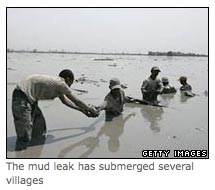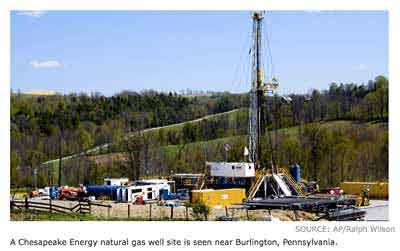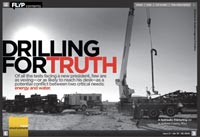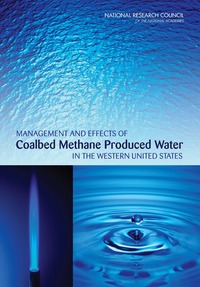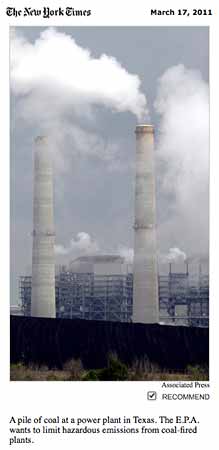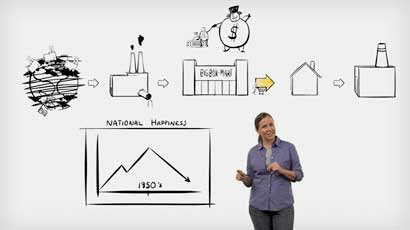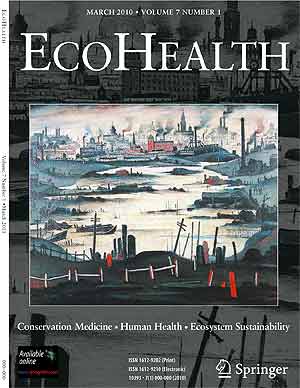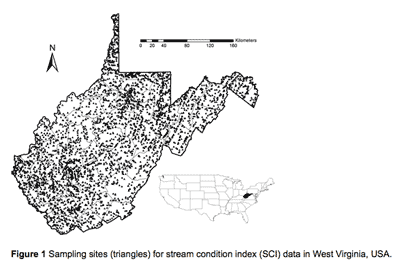Biblio
BBC. January 24, 2007. A mud flow that has displaced thousands of Indonesians was most probably caused by gas drilling, scientists say.
See: Davies, R. J, R. E Swarbrick, R. J Evans, and M. Huuse. 2007. "Birth of a mud volcano: East Java, 29 May 2006." GSA Today 17, no. 2: 4–9.
See below: Hardiyan Digwiyono. (2006). "Children in the Hot Mud Volcanoes". YouTube.
Watch the related videos that follow this one minute film.
Download this brief (pdf)
A widely used oil-and-gas drilling technique, hydraulic fracturing, is spreading rapidly to develop vast reserves of natural gas trapped in deep underground shale formations.
Hydraulic fracking, however, is coming under more rigorous oversight by the press and state and federal agencies because of its contribution to air and water pollution.
This attention is welcome, both to ensure that health and safety will be protected if gas is to be more widely used as a cleaner replacement for coal in electric plants and foreign oil as a transportation fuel. We must also more accurately measure carbon dioxide and other pollution from the combustion of gas compared to coal and oil.
This issue brief explores the ecological and economic issues of “fracking,” as it is increasingly coming to be known in the areas of the country where natural gas is tapped due to the technology. Cutting to the chase, our conclusion is this—hydraulic fracturing needs to be done carefully and be well-monitored, with particular attention paid to the full scope of carbon dioxide released into our atmosphere to gauge accurately the consequences of global warming due to the expanded use of natural gas.
...Concerns about this technique led late last year to a partial moratorium in New York state on new drilling permits that allow fracking. Nationally, advocates want to repeal a 2005 congressional exemption of fracking from oversight under the Safe Drinking Water Act. Many activists also want to require drilling companies to publicly disclose the chemicals it uses, as other industries do under the Community Right to Know law. Industry historically resists such calls, though a number of companies have recently dropped their opposition, saying they will publicize the chemicals they use.
These natural gas operations also produce smog-forming pollutants, contributing to air pollution problems in places such as western Wyoming and the Fort Worth area. Indeed, natural gas wells produce so much air pollution that smog in the area around Pinedale, Wyoming is sometimes as bad as in Los Angeles. And these shale gas wells can release fugitive methane, which is a potent global warming pollutant.
In a recent investigation, for example, The New York Times reported on rivers and waterways that serve public water systems in Pennsylvania being contaminated with naturally occurring radioactive materials, such as radium, as a result of drilling activities. The series has also raised serious questions about the adequacy of oversight by state and federal agencies including the Environmental Protection Agency.
Tom Kenworthy is a Senior Fellow at the Center for American Progress who focuses on energy and environmental issues. Daniel J. Weiss is a Senior Fellow and Director of Climate Strategy at the Center. Lisbeth Kaufman is a Special Assistant with the Center’s Energy team, and Christina C. DiPasquale is Associate Director of Press Relations at the Center.
Abrahm Lustgarten. Flypmedia. Issue 21. January 16-29, 2009. "Drilling for Truth". Page 11.
Includes photos, graphics and videos.
Experimental Flash based interactive online magazine. Last updated Fall 2009. On April 19, 2010, Flyp announced that it will close.
See: Drilling Wastewater Disposal Options in N.Y. Report Have Problems of Their Own - ProPublica
It’s possible that there is $1 trillion worth of natural gas beneath the ground of Pennsylvania. With that kind of money at stake, out-of-state drilling companies are flocking to Pennsylvania and so are their lobbyists.
Use this site to find out which gas companies have been giving unlimited contributions to Pennsylvania politicians… and who's been taking them.
Common Cause Pennsylvania is a non-profit, non-partisan citizens' lobby organization. We are dedicated to restoring the core values of American democracy, reinventing an open, honest and accountable government that serves the public interest, and empowering ordinary people to make their voices heard in the political process.
We work to strengthen public participation and to ensure that the political process serves the public interest, rather than the special interest. Common Cause Pennsylvania conducted the data research available on this website as part of its "Deep Drilling, Deep Pockets" report, released in May of 2010.
Joaquin Sapien and Sabrina Shankman. December 29, 2009 ProPublica.
Environmentalists, state regulators and even energy companies agree that the problem most likely to slow natural gas drilling in the Marcellus Shale in New York is safely disposing of the billions of gallons of contaminated wastewater the industry will produce...
...Of the six injection wells that operate in New York, only one is licensed to accept oil and gas wastewater. It's owned by Lenape Resources Inc., which uses it exclusively for wastewater from its own gas fields [near Rochester, NY].
See: Do the natural gas industry’s surface water withdrawals pose a health risk?
This booklet provides an introduction to drinking water issues. It draws from a body of independent, peer-reviewed expert consensus reports from the National Research Council to provide an overview of public water supply and demand, water management and conservation, options for the government and the private sector, and the economic and ecological
aspects of drinking water.
See the Division of Earth and Life Studies.
Key Finding
Authoring Organizations
WASHINGTON — The Environmental Protection Agency on Wednesday proposed the first national standard for emissions of mercury and other pollutants from coal-burning power plants, a rule that could lead to the early closing of a number of older plants and one that is certain to be challenged by the some utilities and Republicans in Congress...
Lisa P. Jackson, the agency’s administrator, said control of dozens of poisonous substances emitted by power plants was long overdue and would prevent thousands of deaths and tens of thousands of cases of disease a year.
Ms. Jackson pointedly included the head of the American Lung Association and two prominent doctors in her announcement to make the point that the regulations were designed to protect public health and not to penalize the utility industry.
Photograph: Jonathan Ernst/Reuters
Public health advocates said utilities had delayed the rules for more than two decades with court challenges and lobbying campaigns.
“If you think it’s expensive to put a scrubber on a smokestack, you should see how much it costs to treat a child over a lifetime with a birth defect,” said Dr. O. Marion Burton, president of the American Academy of Pediatrics, who stood with Ms. Jackson in announcing the rule.
Oddly, when the story first ran, it included an account of how Ms. Jackson invited a group of second graders from a nearby elementary school to the announcement. Earlier today, Mar. 17, it was edited out. Was it Broder and Rudolf, or the Times? Are children not newsworthy?
"She invited a group of second graders from a nearby elementary school to attend the rule’s unveiling at her agency."
I found a mention of it in a cached Google listing.
Why did the Times delete it? The article as it first appears will always be located here. (PDF). The Google cache will expire as soon as you read this. See for yourself, read between the lines.
(Neil Zusman, 2011-03-17).
Insights and Commentary on Environmental and Energy Issues Worldwide.
Greenberg Traurig, LLP is an international, multidisciplinary law firm with approximately 1800 attorneys and governmental affairs professionals in 32 locations across the United States and in Europe and Asia. The firm was selected as the 2007 USA Law Firm of the Year by Chambers and Partners.
See: David Mandelbaum. December 12, 2010. "Marcellus Shale Update: NY Moratorium Bill Vetoed, NY Executive Order, DRBC Draft Regs, and DRBC Hearing Curtailed."
See: Robert Charrow and Laura Klaus of GT Washington D.C. and David Mandelbaum of GT Philadelphia. Feb 4, 2011. "AEP v. Connecticut: Climate Change as a Public Nuisance".
Democracy Now! interview with Environmentalist, 350.org Founder Bill McKibben on Eaarth: Making a Life on a Tough New Planet.
Ahead of Bolivia’s indigenous summit on climate change and the expected unveiling of a Senate climate bill next week, we speak to someone who sounded one of the earliest alarms about global warming.
Twenty years ago, environmental activist Bill McKibben wrote The End of Nature, but his warnings went largely unheeded.
Now, as people are grappling with the unavoidable effects of climate change and confronting an earth that is suddenly melting, drying, acidifying, flooding and burning in unprecedented ways, Bill McKibben is out with Eaarth: Making a Life on a Tough New Planet, a new book about what we have to do to survive this brave new world. [includes rush transcript]
See:Global Warming Frequently Asked Questions
See also: Video - 350.org: Because the world needs to know.
What's the best way to introduce the world to 350?
With over 4000 languages spoken around the world, it's probably not with a bunch of words. We did our best to boil down the science of global warming and vision of the 350 Campaign in 90 seconds--and with no words.
Our focus is on the number 350—as in parts per million CO2. If we can't get below that, scientists say, the damage we're already seeing from global warming will continue and accelerate. But 350 is more than a number—it's a symbol of where we need to head as a planet.
Our theory of change is simple: if an international grassroots movement holds our leaders accountable to the latest climate science, we can start the global transformation we so desperately need.
This fragile Earth deserves a voice. It needs solutions. It needs change. It needs you.
Dirceted by Daniel Bird.
Music and sound design by Hecq.
See: The Story of Stuff | With Annie Leonard
Tides Foundation is proud to present The Story of Stuff — a 20-minute, fast-paced, fact-filled look at the underside of our production and consumption patterns that calls us together to create a more sustainable and just world.
Narrated and created by activist Annie Leonard, the film tells an engaging story about 'all our stuff' where it comes from and where it goes when we throw it away.
Tides Foundation and The Funders Workgroup for Sustainable Production and Consumption partnered with Free Range Studios to produce the film and the website, www.storyofstuff.com
The website includes faith-based teaching guides.
See: Beach Lake United Methodist Church. "Gas Drilling Discussion (Suggested Agenda for) : Biblical and Theological Considerations".
Earthjustice Fast Facts
Did you know? We've provided legal representation at no cost to more than 700 clients, from the Natural Resources Defense Council and the Wilderness Society to community-based coalitions. Here are some more facts about us:
- Founded in 1971 as the Sierra Club Legal Defense Fund
- Name changed to Earthjustice in 1997
- Headquartered in Oakland, CA
- Number of employees: ~150
- President: Trip Van Noppen
Shell | Appalachia
The acquisition of East Resources, a Pennsylvania-based oil and gas company, on July 29, 2010, is the foundation for Shell’s new operations and growth in the Appalachian Basin. Shell’s current Marcellus Shale operations are focused in Tioga County.
On May 28, 2010, Bloomberg.com reported that Royal Dutch Shell Plc agreed to buy closely held East Resources Inc., for about $5 billion.
East Resources will no longer be a U.S. corporation.
This will be the second-biggest oil and gas deal this year, after BP Plc’s cash acquisition of deepwater assets from Devon Energy Corp. for $7 billion on March 11, according to Bloomberg data.
Private-equity firm Kohlberg Kravis Roberts & Co. invested $350 million in East Resources 11 months ago, according to the Journal.
Exxon Mobil Corp., the biggest U.S. oil company, agreed in December to buy XTO Energy Inc., the country’s largest natural gas producer, for $31 billion to gain control of shale-gas assets. Companies from India’s Reliance Industries Ltd. to Japan’s Mitsui & Co. are spending billions of dollars on drilling to dislodge natural gas from shale -- sedimentary rock composed of mud, quartz and calcite.
East Resources, Inc. is an independent exploration and development company with more than 1.25 million acres of land holdings. East Resources owns and operates more than 2,500 producing oil and gas wells in New York, Pennsylvania, West Virginia, and Colorado and is actively exploring drilling programs in Wyoming.
On July 2, 2010, ProPublica reported wastewater from a nearby East Resources gas well leaked into a field and came in contact with farm animals resulting in a state-ordered quarantine of 16 cows.
See: A Fracking First in Pennsylvania: Cattle Quarantine
"Tests performed for East Resources Inc., found hazardous chemicals and heavy metals, including chloride, barium and strontium. East did not dispute that a leak had occurred."
Reuters reported that a survey by Pennsylvania Land Trust Association, based on data from state regulators found that East Resources committed the most violations, 138, followed by Chesapeake Appalachia LLC with 118, and the privately held Chief Oil & Gas Corp. with 109.
A dissection of the Soviet Union's legacy of health and environmental disaster, this book examines a former country of 103 cities - home to 70 million people - where the air is unfit to breathe and pollution fouls 75 percent of the water.
Feshbach, Murray, and Alfred Friendly. 1992. Ecocide in the USSR: health and nature under siege. New York, NY: BasicBooks. Includes section (p.256) "The Prices of Cleanup".
Dr. Nathaniel Hitt
Assessments of ecological integrity are commonly used for conservation planning, but are they also relevant for understanding public health and disease?
In this study, Hitt and Hendryx answer this question in the affirmative, demonstrating that the ecological integrity of stream benthic macroinvertebrate communities is related to human cancer mortality in West Virginia, USA.
The authors concluded that, although the macroinvertebrate data analyzed in their study were collected to assess the quality of aquatic life, such ecological assessments offer valuable insights for public health.
See: Ken Ward Jr. April 21, 2010. The Charleston Gazette | Coal Tattoo. "New WVU-Va Tech study links water quality and cancer deaths in West Virginia coalfields".
Economic Implications of Marcellus Shale Natural Gas Development: Potential Impacts on Tourism, Agriculture, and Housing
A webinar hosted by Cornell University's Community and Regional Development Institute (CaRDI) on May 9, 2011 presented the work of a graduate student project in the Dept. of City and Regional Planning guided by Professor Susan Christopherson. Presenters: Vera Bartolome Diaz, Tom Knipe, Christopher Smith, Greg Waldman, Ethan Warsh, David West and Austin Zwick. (PDF version of the Powerpoint).
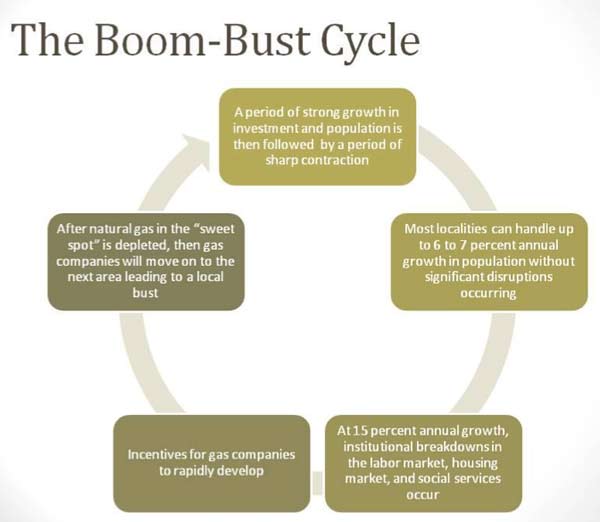
See: Christopherson to study economic impact of gas drilling in Marcellus Shale

Photo by Neil Zusman
Christopherson states that after fracking, there is no other industry. That will be all there is economically for the next ten to twenty years. Forget about agriculture, tourism, wine, tourism, and anything else besides energy. After a decade or two, or more, things might return to normal...
See: Catskill Citizens | More Damning Evidence About Fracking







